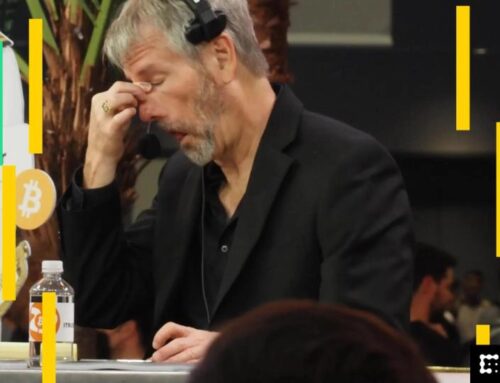G20 countries could produce enough renewable energy for the whole world – what needs to ha
June 17, 2025
The world’s most developed economies have also burnt the most oil and coal (fossil fuels) over the years, causing the most climate change damage. Preventing further climate change means a global fossil fuel phase-out must happen by 2050. Climate change mitigation scientists Sven Teske and Saori Miyake analysed the potential for renewable energy in each of the G20 countries. They concluded that the G20 is in a position to generate enough renewable energy to supply the world. For African countries to benefit, they must adopt long term renewable energy plans and policies and secure finance from G20 countries to set up renewable energy systems.
Why is the G20 so important in efforts to limit global warming?
The G20 group accounts for 67% of the world’s population, 85% of global gross domestic product, and 75% of global trade. The member states are the G7 (the US, Japan, Germany, the UK, France, Italy, Canada), plus Australia, China, India, Indonesia, Republic of Korea, Russia, Türkiye, Saudi Arabia, South Africa, Mexico, Brazil and Argentina.
We wanted to find out how G20 member states could limit global warming. Our study examined the solar and wind potential for each of G20 member countries (the available land and solar and wind conditions). We then compared this with projected electricity demands for 2050. This is, to our knowledge, the first research of its kind.
Read more:
G20 is too elite. There’s a way to fix that though – economists
We found that the potential for renewable energy in G20 countries is very high – enough to supply the projected 2050 electricity demand for the whole world. They have 33.6 million km² of land on which solar energy projects could be set up, or 31.1 million km² of land on which wind energy projects could be set up.
This potential varies by geography. Not all G20 countries have the same conditions for generating solar and wind energy, but collectively, the G20 countries have enough renewable energy potential to supply the world’s energy needs.
But for the G20 countries to limit global warming, they also need to stop emitting greenhouse gases. Recent figures show that the G20 countries were responsible for generating 87% of all energy-related carbon dioxide emissions that cause global warming.
On the other hand, African Union countries (apart from South Africa, which is a high greenhouse gas emitter), were responsible for only 1.2% of the global total historical emissions until 2020.
The G20 countries with the highest renewable energy potential (especially Australia and Canada) are major exporters of the fossil fuels that cause global warming. Along with every other country in the world, the G20 nations will need to end their human-caused carbon emissions by 2050 to prevent further climate change.
Where does Africa fit into the picture?
African countries cannot set up new electricity plants based on burning fossil fuels, like coal. If they do that, the world will never end human-caused greenhouse gas emissions by 2050. The continent must generate electricity for the 600 million Africans who do not currently have it but will need to move straight past fossil fuels and into renewable energy.
For this, Africa will need finance. The African Union hosts the G20 summit later this year. This meeting begins just after the world’s annual climate change conference (now in its 30th year and known as COP30). These two summits will give Africa the chance to lobby for renewable energy funding from wealthier nations.
Africa already has the conditions needed to move straight into renewable energy. The continent could be generating an amount of solar and wind power that far exceeds its projected demand for electricity between now and 2050.
We are launching an additional analysis of the solar and wind potential of the entire African continent in Bonn, Germany on 19 June 2025 at a United Nations conference. This shows that only 3% of Africa’s solar and wind potential needs to be converted to real projects to supply Africa’s future electricity demand.
Read more:
Africa’s power pools: what the G20 can do to help countries share electricity
This means that Africa has great untapped potential to supply the required energy for its transition to a middle-income continent – one of the African Union’s goals in Agenda 2063, its 50 year plan.
But to secure enough finance for the continent to build renewable energy systems, African countries need long-term energy policies. These are currently lacking.
So what needs to be done?
The countries who signed up to the 2015 international climate change treaty (the Paris Agreement) have committed to replacing polluting forms of energy such as coal, fuelwood and oil with renewable energy.
South Africa, through its G20 presidency, must encourage G20 nations to reduce their greenhouse gas emissions and support renewable energy investment in Africa.
Read more:
Fossil fuels are still subsidised: G20 could push for the funds to be shifted to cleaner energy
Because financing the global energy transition is already high on the priority list of most countries, South Africa should push for change on three fronts: finance, sound regulations and manufacturing capacity for renewable technologies. These are the among the main obstacles for renewables, particularly in Africa.
Finance: Financing the energy transition is among the highest priorities for COP30. Therefore, the COP30 meeting will be an opportunity for the African Union to negotiate finance for its renewable energy infrastructure needs.
For this, fair and just carbon budgets are vital. A carbon budget sets out how much carbon dioxide can still be emitted in order for the global temperature not to rise more than 2°C higher than it was before the 1760 industrial revolution.
A global carbon budget (the amount of emissions the whole world is allowed) has been calculated, but it needs to be divided up fairly so that countries that have polluted most are compelled to limit this.
To divide the global carbon budget fairly, energy pathways need to be developed urgently that consider:
-
future developments of population and economic growth
-
current energy supply systems
-
transition times for decarbonisation
-
local renewable energy resources.
The G20 platform should be used to lobby for fair and just carbon budgets.
Read more:
Wealthy nations owe climate debt to Africa – funds that could help cities grow
Sound regulations that support the setting up of new factories: Governments must put policies in place to support African solar and wind companies. These are needed to win the trust of investors to invest in a future multi-billion dollar industry. Long-term, transparent regulations are needed too.
These regulations should:
-
say exactly how building permits for solar and wind power plants will be granted
-
prioritise linking renewable energy plants to national electricity grids
-
release standard technical specifications for stand-alone grids to make sure they’re all of the same quality.
Taking steps now to speed up big renewable energy industries could mean that African countries end up with more energy than they need. This can be exported and increase financial income for countries.
Search
RECENT PRESS RELEASES
Related Post




